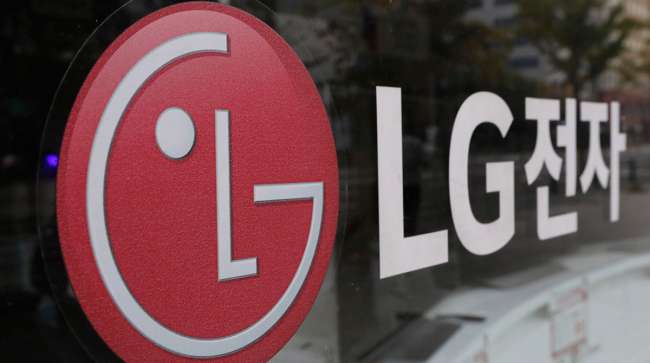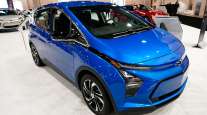Bloomberg News
Battery Maker LG Energy Slashes Spending on EV Demand Risks

[Stay on top of transportation news: Get TTNews in your inbox.]
Battery maker LG Energy Solution Ltd. said it will make major cuts to spending this year, though it expects a rebound in sales, as major uncertainties hang over the global electric vehicle sector.
The supplier to automakers including General Motors Co., Tesla Inc. and Volkswagen AG will reduce capital expenditure by 20% to 30%, it said in a filing on Jan. 24.
LG Energy confirmed a surprise 225.5 billion won ($157 million) operating loss for the three months ended Dec. 31. The result includes 377.3 billion won of tax credits from the U.S.
Still, LG Energy expects to see sales increase 5% to 10% this year as new assembly lines at North American plants jointly run with Honda Motor Co. and Stellantis NV start up.
Key Takeaways:
- LG estimates it may receive tax credits under the IRA for about 50 gigawatt-hours.
- LG’s Lee said the U.S. is unlikely to cancel the production credit in the IRA, given it creates jobs.
- LG is developing prismatic batteries with GM, although the timing for commercialization hasn’t been decided.
- LG’s customers in North America trimmed their inventory during the quarter, leading to orders for fewer batteries. Such moves may end in the second quarter, and plans by GM to introduce a new EV would boost battery sales.
The company is also looking to start selling new products, including a next generation 46-millimeter cylindrical battery, Chief Financial Officer Lee Chang-sil said.
The mixed outlook from the world’s third-biggest EV battery supplier signals ongoing turbulence for the sector as demand slows. GM is shutting down its self-driving vehicle business, months after it scaled back its EV production goals. Meanwhile, European auto giants have seen sales in China soften and are struggling with stagnating consumer interest at home. VW has no new EV models to roll out this year, threatening to extend its sales slump, while BMW AG and Mercedes-Benz Group AG are shuffling their leadership teams.
The future of energy policy in the U.S. is a major uncertainty for LG. The company currently receives tax credits under the Inflation Reduction Act, which is pushing to reduce U.S. dependence on China in the EV supply chain. But President Donald Trump has ordered the elimination of subsidies and policies that favor EVs.
The U.S. is likely to reduce or revoke the existing $7,500 EV subsidy and automakers appear to be taking a “conservative approach” due to remarks from the new Trump administration around policy changes, Lee said on a call. In the short term, LG will focus on investment efficiency, including cutting capex and focusing on existing plants rather than building new ones, he said.
While it’s not easy for Trump to revise the IRA, he can change some guidance in the law without the need for congressional approval, Jamin Koo, a New York-based attorney at Covington, said last week. Trump may demand that battery makers reduce the use of critical minerals from so-called foreign entities of concern in their supply chains more than the Biden administration did, he said.
Want more news? Listen to today's daily briefing above or go here for more info
LG may benefit from a global push to reduce reliance on China for critical technologies like batteries. Contemporary Amperex Technology Co. Ltd., the world’s biggest EV battery maker, was blacklisted by the U.S. Defense Department earlier this month. Moves in Canada and European Union indicate tariffs may be enacted, which BloombergNEF says are likely to target China.
LG plans to start production at its lithium-iron-phosphate battery plant in Arizona in the first half of this year, earlier than the initial target of 2026, Lee said. The cells will be provided for energy storage systems, with strong demand in North America, he said.
The company’s earnings are likely to hit a bottom in the first quarter and it’s unlikely sales will rise from the fourth quarter.




